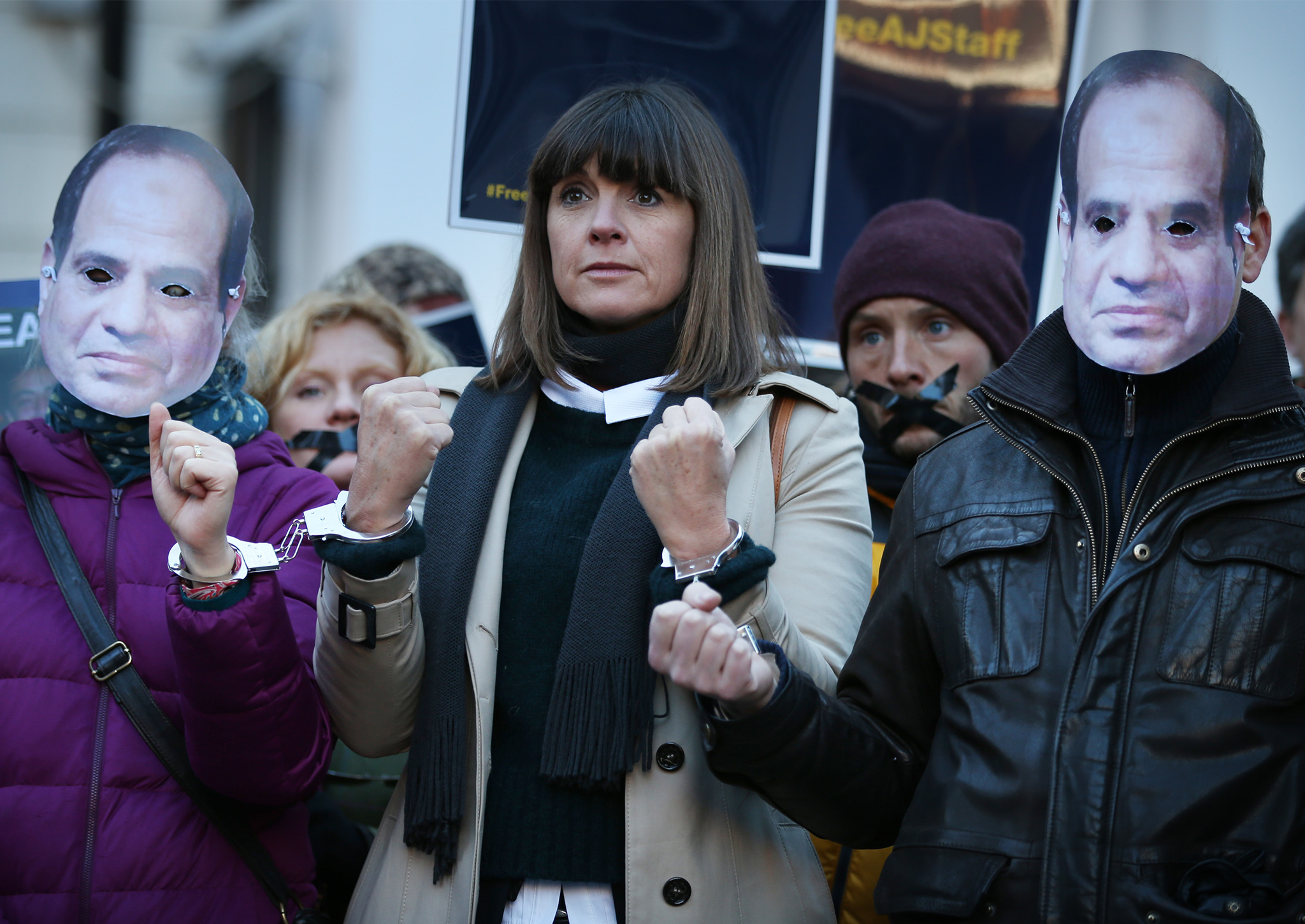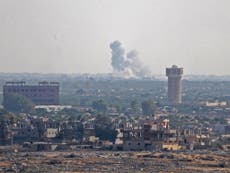Egypt wasn't able to imprison me along with three of my Al Jazeera colleagues, but it has forced me to quit the job I love
Because of global extradition deals the risks are just too high for me as a journalist

A WhatsApp message pinged on my mobile and the walls of my hotel room started closing in: "Don’t want to worry u but an Al Jazeera journo has just been arrested in Berlin at the request of the Egyptian government."
The journalist was Ahmed Mansour, an Al Jazeera Arabic correspondent who was convicted in Egypt in absentia and on an Egyptian arrest warrant. I was in the same situation, charged and tried in absentia in Egypt, after being falsely accused with eight of my colleagues of aiding and abetting a terrorist organisation, namely the Muslim Brotherhood.
We had just been doing our jobs as best we could in the face of a media crackdown in Egypt, but a sham trial had landed me with a ten-year prison sentence. So I was effectively on the run, and being very careful not to travel to countries that might consider extraditing me to Egypt.
Germany wasn’t supposed to be on that list. I had gone in and out of Tegel airport myself just ten days earlier. Now I was in Budapest and feeling very nervous. I knew there was an extradition treaty between Egypt and Hungary but this was Europe. The Western bloc had written off our convictions as trumped up and politically driven, recognising that Egypt was punishing Qatar for supporting the Muslim Brotherhood. Even Interpol had filed Egypt’s pursuit of journalists as not actionable.
"If ur worried take the train across the border and fly back from there," my friend in Doha suggested on WhatsApp. I logged onto Google maps and looked at where might be safest among Hungary’s neighbours but decided to take a chance and the next morning nervously approached immigration at Budapest’s Ferenc Liszt Airport.
The uniformed officer picked up his pen and asked where I was flying to. "Doha", I replied. "Where?" "Doha in Qatar?" He scribbled something on my ticket and sent me on my way. The knot in my stomach began to ease as my mobile rang. It was the British Foreign Office assuring me that after Mansour’s arrest they were now actively looking into my safety when travelling in Europe.
It was seventeen months since Egypt put me on an arrest list, but Germany’s swoop on my colleague meant a wholesale reassessment. The Egyptian President had visited Angela Merkel a week earlier. David Cameron had now invited President Abdel Fatah al-Sisi to the UK later this year. Should I then be worried about going home?
In the end Mansour’s arrest looked to have been more by default than design. But I had come to realise that my job as roving correspondent had become more and more difficult. I joined Al Jazeera as the Afghanistan Correspondent five years ago and have since covered mostly war and conflict, reporting extensively on the Libyan revolution, the Syrian war, Iraq, Beirut, Egypt and Russia.
But in the past year I’ve had to turn down trips to Mauritania, Djibouti, Somalia, Libya and beyond because of my conviction in Egypt. My last assignment was to South Africa, which has an extradition treaty with Egypt but my bosses were satisfied I wasn't at risk. Then I flicked on the TV in the Johannesburg Holiday Inn one morning to see President Sisi sitting down for tea with President Jacob Zuma.
I have a second passport with a different number to the one on the Egyptian arrest warrant but as a correspondent I don’t go in and out of countries quietly. I report live on TV screens all over the world, including those in Cairo. So I’ve hung up my flak jacket and quit the job. This side-swipe to my career is nothing compared to the endless months my three colleagues spent in jail and their on-going travel ban until the verdict in their retrial scheduled at the end of July.
Egypt couldn’t take away my freedom but it has made my world a lot smaller.



Join our commenting forum
Join thought-provoking conversations, follow other Independent readers and see their replies